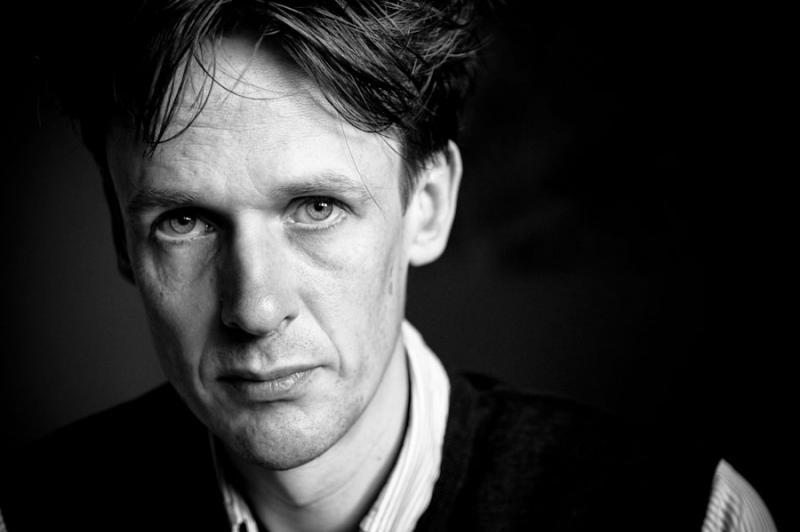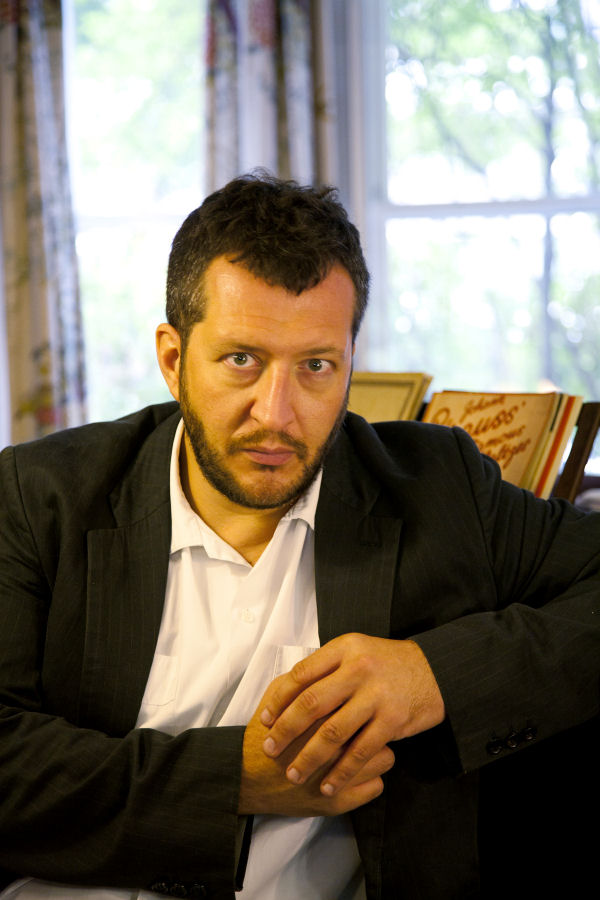Ian Bostridge, Thomas Adès, Wigmore Hall review - haunting, brutal Schubert | reviews, news & interviews
Ian Bostridge, Thomas Adès, Wigmore Hall review - haunting, brutal Schubert
Ian Bostridge, Thomas Adès, Wigmore Hall review - haunting, brutal Schubert
A Winterreise of psychological intensity, but too often taken to ghoulish extremes

Winterreise brings out the best from Ian Bostridge, and the worst. His dedication to understanding and communicating its complex and harrowing text is everywhere apparent, and this was an emotionally draining evening.
Bostridge has little tone to his voice, though what there is is carefully modulated between the more melodic numbers – “Der Lindenbaum”, “Die Post” – and the drier, more pained ones like “Rückblick” and “Wasserflut”. Occasionally, he will demonstrate a fine, rich upper register, but more often the high lines are delivered in a hollow, nasal head voice. Sometimes, as at the end of “Die Krähe”, he will move from a haunting, intimate tone, to a loud, almost raucous version of the same, the effect too brutal for Schubert’s contained drama.
There was little sense here that the protagonist was on a journey into insanity: Bostridge was already there from the very first line. Occasionally he got the tone just right, as in “Rückblick”, the long song delivered with a fragile evenness that spoke of a tenuous hold on sanity. And when Bostridge sang in a more open and lyrical tone, he always gave an uneasy hint of dark irony. “Einsamkeit” was one such number, the voice round, but the phrasing erratic and the intonation provocatively wayward, some lines begun just under the pitch and only begrudgingly rising to meet the piano. “Letzte Hoffnung” was delivered relatively straight, the music, the words and the voice all in agreement on the uncomplicated sorrows. But just a few songs later, in “Täuschung”, the complexity returned, Bostridge singing with a forced, hollow jollity, the better to put across the darkly sardonic intent.
 Thomas Adès (pictured left) proved a surprisingly accommodating pianist, his approach more lyrical than Bostridge’s, but a fitting complement. Adès was lighter of touch than in his solo work, but still drew a round resonant tone from the Wigmore’s Steinway. He was sensitive to Bostridge’s often erratic phrasing, but when he played alone the music flowed more naturally. In some numbers Adès almost got carried away: “Die Post” was delivered with plenty of weight, as was “Der stürmische Morgen”. But other numbers drew a surprising tenderness from him, the atmospheric “Rast” and the reflective “Das Wirtshaus”.
Thomas Adès (pictured left) proved a surprisingly accommodating pianist, his approach more lyrical than Bostridge’s, but a fitting complement. Adès was lighter of touch than in his solo work, but still drew a round resonant tone from the Wigmore’s Steinway. He was sensitive to Bostridge’s often erratic phrasing, but when he played alone the music flowed more naturally. In some numbers Adès almost got carried away: “Die Post” was delivered with plenty of weight, as was “Der stürmische Morgen”. But other numbers drew a surprising tenderness from him, the atmospheric “Rast” and the reflective “Das Wirtshaus”.
But both performers were on particularly distinctive/eccentric form for the last song, “Der Leiermann”. Adès punched out the two adjacent notes of the opening ornament together, creating a sustained dissonance, and then played the hurdy-gurdy obbligato without discernible tempo. Over this, Bostridge craned his long neck as he slowly dissected the vocal line, separating each of the words and lingering on the large intervals of the melodic line. A suitably uncomfortable end to an emotive but often tortuous evening.
rating
Explore topics
Share this article
The future of Arts Journalism
You can stop theartsdesk.com closing!
We urgently need financing to survive. Our fundraising drive has thus far raised £49,000 but we need to reach £100,000 or we will be forced to close. Please contribute here: https://gofund.me/c3f6033d
And if you can forward this information to anyone who might assist, we’d be grateful.

Subscribe to theartsdesk.com
Thank you for continuing to read our work on theartsdesk.com. For unlimited access to every article in its entirety, including our archive of more than 15,000 pieces, we're asking for £5 per month or £40 per year. We feel it's a very good deal, and hope you do too.
To take a subscription now simply click here.
And if you're looking for that extra gift for a friend or family member, why not treat them to a theartsdesk.com gift subscription?
more Classical music
 Presteigne Festival 2025 review - new music is centre stage in the Welsh Marches
Music by 30 living composers, with Eleanor Alberga topping the bill
Presteigne Festival 2025 review - new music is centre stage in the Welsh Marches
Music by 30 living composers, with Eleanor Alberga topping the bill
 Lammermuir Festival 2025 review - music with soul from the heart of East Lothian
Baroque splendour, and chamber-ensemble drama, amid history-haunted lands
Lammermuir Festival 2025 review - music with soul from the heart of East Lothian
Baroque splendour, and chamber-ensemble drama, amid history-haunted lands
 BBC Proms: Steinbacher, RPO, Petrenko / Sternath, BBCSO, Oramo review - double-bill mixed bag
Young pianist shines in Grieg but Bliss’s portentous cantata disappoints
BBC Proms: Steinbacher, RPO, Petrenko / Sternath, BBCSO, Oramo review - double-bill mixed bag
Young pianist shines in Grieg but Bliss’s portentous cantata disappoints
 theartsdesk at the Lahti Sibelius Festival - early epics by the Finnish master in context
Finnish heroes meet their Austro-German counterparts in breathtaking interpretations
theartsdesk at the Lahti Sibelius Festival - early epics by the Finnish master in context
Finnish heroes meet their Austro-German counterparts in breathtaking interpretations
 Classical CDs: Sleigh rides, pancakes and cigars
Two big boxes, plus new music for brass and a pair of clarinet concertos
Classical CDs: Sleigh rides, pancakes and cigars
Two big boxes, plus new music for brass and a pair of clarinet concertos
 Waley-Cohen, Manchester Camerata, Pether, Whitworth Art Gallery, Manchester review - premiere of no ordinary violin concerto
Images of maternal care inspired by Hepworth and played in a gallery setting
Waley-Cohen, Manchester Camerata, Pether, Whitworth Art Gallery, Manchester review - premiere of no ordinary violin concerto
Images of maternal care inspired by Hepworth and played in a gallery setting
 BBC Proms: Barruk, Norwegian Chamber Orchestra, Kuusisto review - vague incantations, precise laments
First-half mix of Sámi songs and string things falters, but Shostakovich scours the soul
BBC Proms: Barruk, Norwegian Chamber Orchestra, Kuusisto review - vague incantations, precise laments
First-half mix of Sámi songs and string things falters, but Shostakovich scours the soul
 BBC Proms: Alexander’s Feast, Irish Baroque Orchestra, Whelan review - rapturous Handel fills the space
Pure joy, with a touch of introspection, from a great ensemble and three superb soloists
BBC Proms: Alexander’s Feast, Irish Baroque Orchestra, Whelan review - rapturous Handel fills the space
Pure joy, with a touch of introspection, from a great ensemble and three superb soloists
 BBC Proms: Moore, LSO, Bancroft review - the freshness of morning wind and brass
English concert band music...and an outlier
BBC Proms: Moore, LSO, Bancroft review - the freshness of morning wind and brass
English concert band music...and an outlier
 Willis-Sørensen, Ukrainian Freedom Orchestra, Wilson, Cadogan Hall review - romantic resilience
Passion, and polish, from Kyiv's musical warriors
Willis-Sørensen, Ukrainian Freedom Orchestra, Wilson, Cadogan Hall review - romantic resilience
Passion, and polish, from Kyiv's musical warriors
 BBC Proms: Faust, Gewandhausorchester Leipzig, Nelsons review - grace, then grandeur
A great fiddler lightens a dense orchestral palette
BBC Proms: Faust, Gewandhausorchester Leipzig, Nelsons review - grace, then grandeur
A great fiddler lightens a dense orchestral palette
 BBC Proms: Jansen, Royal Concertgebouw Orchestra, Mäkelä review - confirming a phenomenon
Second Prom of a great orchestra and chief conductor in waiting never puts a foot wrong
BBC Proms: Jansen, Royal Concertgebouw Orchestra, Mäkelä review - confirming a phenomenon
Second Prom of a great orchestra and chief conductor in waiting never puts a foot wrong
